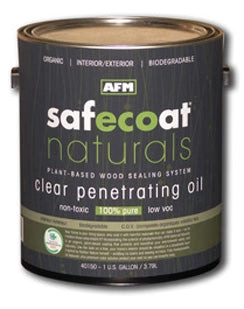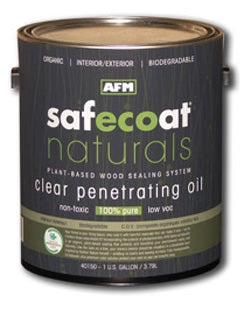Answer
May 08, 2019 - 08:42 AM
Mineral oil is a liquid by-product of refining crude oil to make gasoline. It's not suspected to be carcinogenic but has not been proven to be harmless, either. When used on cutting boards and countertops it helps seal the surface for a short while, until it wears off. Linseed oil, on the other hand, is a natural, long-lasting penetrating sealer that becomes harder with age and seals moisture very well. Most linseed oil-based sealers contain petroleum-based solvents or mineral spirits to help them penetrate better, and dryers such as Japan dryer or lead Octoate dryers to help them cure faster. Unfortunately, these solvents and dryers don't mix well with food and are often toxic.We offer several food-grade sealers for countertops that don't contain anything hazardous: AFM Safecoat Naturals Clear Penetrating Oil, Bioshield Herbal Oil and Bioshield Wood Counter Finish.The AFM Naturals oil is made with a unique blend of organically grown flax, linseed, hemp, and soybean oils with lead-free dryers and no mildewcides or preservatives. It is our most popular food grade sealer.Our Bioshield Herbal oil is made from organic cold-pressed linseed oil, but without dryers and solvents. It is thinner than the AFM Naturals product and penetrates better in denser wood.The Bioshield Wood Counter Finish contains linseed oil, tung oil, linseed stand oil, silicic acid, beeswax, candelilla wax, lemon oil and a lead-free dryer.All of these products should be used on raw or freshly sanded wood, bamboo or other porous surfaces. If the surface has been previously sealed, it should be stripped, sanded or ground off to open up the pores so that the new product can penetrate deeply into the wood. Both AFM and Bioshield offer non-toxic solvents (AFM Diluent and Bioshield Citrus Oil Thinner) to help oils penetrate, but neither of these are recommended for food-related applications.



